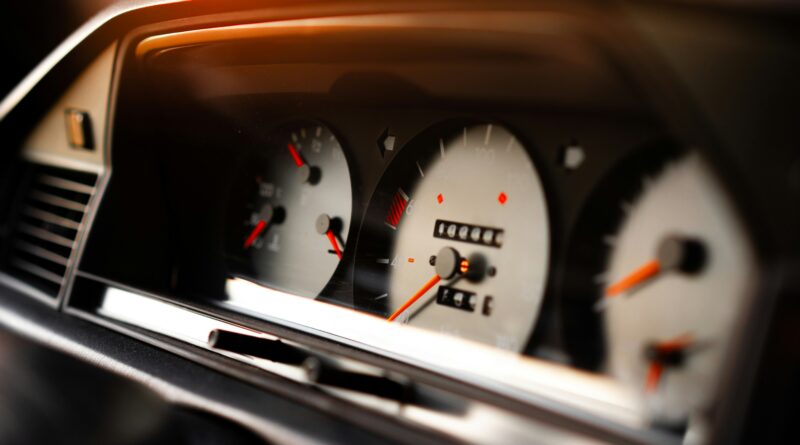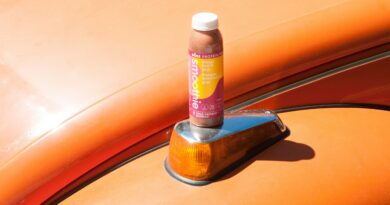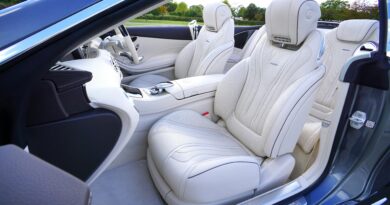How to Increase Mileage of Old Cars | Best Fuel Saving Tips
If you’re driving an older car, you’re probably aware of the challenges that come with maintaining fuel efficiency. As vehicles age their engines and components start to wear down leading to higher fuel consumption. But don’t worry! You can still improve the mileage of old cars by adopting a few simple habits and techniques.
This article will guide you on how to save fuel and get the most out of your aging vehicle, saving you money in the long run.
Concise Version of the Table
| Tip | Description |
| Drive Less | Reduce short trips to save fuel. |
| Combine Errands | Plan errands in one trip to minimize cold starts. |
| Plan Shorter Routes | Avoid traffic and choose smoother paths. |
| Timely Maintenance | Regular service keeps your car efficient. |
| Gentle Driving | Accelerate smoothly to conserve fuel. |
| Tyre Pressure | Maintain correct tyre pressure for better mileage. |
| Close Windows | Keep windows closed at high speeds. |
| Declutter | Remove excess weight from your car. |
| Avoid Idling | Turn off the engine when waiting. |
| High-Quality Oil | Use proper engine oil for older engines. |
| Consider Hybrids | Hybrids offer better fuel efficiency. |
Drive Less, Save More
One of the simplest ways to save fuel is to drive less. The more you drive the more fuel your vehicle consumes. This is especially true for older cars, which tend to use more fuel in stop-and-go traffic or short trips. Instead of driving for every little errand, consider walking or cycling for short distances. Not only will this help you save on fuel, but it’s also great for your health.
By driving less, you’re also reducing wear and tear on your vehicle. This is particularly important for older cars, which are more prone to mechanical issues. For example, frequent short trips can put extra strain on your car’s engine leading to higher fuel consumption. So, next time you’re about to drive to the grocery store down the street, consider leaving the car behind.
Combine Errands to Reduce Fuel Burn in Aged Vehicles
When it comes to saving fuel in older cars, combining errands is a game-changer. Each time you start your car it burns extra fuel while it warms up. This is particularly noticeable with older vehicles. Which needs a bit more time to reach optimal fuel efficiency. By combining multiple trips into one. You can avoid having to start your car several times in a day.
Planning your errands ahead of time can help you save fuel. If you need to go to the bank, the grocery store, and the post office, try to do it all in one trip. This not only reduces the number of cold starts but also helps you avoid congested areas where your car would burn more fuel in traffic. You’ll notice the difference in your fuel bill.
Plan Shorter, Smoother Routes for Better Mileage in Old Cars
Planning your route is crucial when you’re trying to increase the mileage of old cars. Older vehicles tend to perform better on smoother, less congested roads. Traffic jams and sudden stops use more fuel, so finding a route with less traffic will help you save. If you have a choice, avoid major highways during rush hours and look for quieter side streets or backroads.
Using navigation apps like Google Maps or Waze can help you find the quickest and least congested routes. These apps show real-time traffic conditions, helping you avoid unexpected delays that waste fuel. By taking the time to plan your route, you can drive more efficiently, reduce fuel consumption, and save money on gas.
Timely Maintenance is a Lifesaver for Older Engines
Regular maintenance is essential for maintaining the mileage of old cars. Older engines require extra attention to keep them running smoothly. Neglecting routine services such as oil changes, air filter replacements, and spark plug checks can lead to poor fuel efficiency. It’s crucial to keep your car in top condition by following the manufacturer’s maintenance schedule.
An engine that is properly maintained will burn fuel more efficiently and last longer. For instance, a clogged air filter can cause your engine to work harder, consuming more fuel. Keeping your engine oil fresh and clean also reduces friction, which helps your car run more efficiently. By investing in regular maintenance, you can improve your car’s mileage and extend its lifespan.
Adopt Gentle Driving Habits
Your driving habits play a huge role in determining the fuel efficiency of your vehicle. If you’re driving an old car, it’s especially important to be gentle with the accelerator. Rapid acceleration and harsh braking can waste fuel and strain the engine. Try to accelerate slowly and steadily, allowing the engine to work at a consistent pace. This is especially important for older cars that have a tendency to burn more fuel if driven aggressively.
Another important tip is to maintain a steady speed. Avoid sudden acceleration and deceleration, as these actions use more fuel. On highways, cruise control can help you maintain a constant speed, reducing the fuel consumption. Gentle driving not only saves fuel but also helps keep your car’s engine healthy for a longer time.
Old Car? Tyre Pressure Matters Even More!
Tyre pressure plays a vital role in your car’s fuel efficiency. Under-inflated tyres force the engine to work harder, using more fuel. Older cars are even more sensitive to changes in tyre pressure. Checking and adjusting tire pressure regularly is an easy way to boost mileage.
- Check tire pressure at least once a month.
- Use a tyre pressure gauge or visit a service station.
- Find the recommended pressure in your car’s manual.
- Ensure tyres are inflated properly to reduce fuel wastage.
- Proper tyre pressure improves overall vehicle efficiency.
Shut Windows to Improve Aerodynamics in Older Vehicles
The aerodynamics of your vehicle plays a significant role in its fuel efficiency. When you’re driving at higher speeds, open windows create drag, which forces the engine to work harder to maintain speed. This is especially detrimental to older cars, which are generally less efficient than newer models. To improve your fuel economy, keep your windows closed while driving on highways or at higher speeds.
If you need to cool down the car, consider using the air conditioning instead. While this might seem counterproductive, it’s actually more fuel-efficient to use the AC with the windows up than to drive with the windows down. Small changes like this can make a big difference in your fuel consumption, especially for older vehicles.
Declutter Your Car
The more weight your car carries, the more fuel it burns. This is especially true for old cars, which are not designed to handle heavy loads efficiently. Removing unnecessary items from your car can reduce the strain on the engine and help improve fuel efficiency. Take out heavy items like tools, old clothing, or sports equipment that you don’t need.
Also, avoid storing items on the roof of your car, as this adds to the vehicle’s weight and creates additional drag, further reducing fuel economy. By keeping your car light and clean, you allow it to run more efficiently and save on fuel.
Avoid Sudden Acceleration in Older Engines
Sudden acceleration wastes fuel by making the engine work harder, especially in older cars. Older engines are less efficient at handling rapid power demands. To improve fuel efficiency, accelerate slowly and smoothly. Avoid frequent stopping and starting to reduce strain on the engine.
- Accelerate gently to conserve fuel.
- Keep a safe distance to coast to a stop.
- Avoid rapid acceleration, especially in older cars.
- Smooth driving reduces engine strain.
- Frequent braking wastes fuel and harms efficiency.
Use High-Quality Engine Oil Suited for Aging Engines
The type of engine oil you use can have a significant impact on the mileage of old cars. As engines age, they may require different types of oil to maintain optimal performance. High-quality synthetic oil or high-mileage oils are designed to reduce friction and improve fuel efficiency in older engines.
Choosing the right oil for your car can help it run smoother and consume less fuel. Be sure to follow the manufacturer’s recommendations for oil type and change intervals. Regular oil changes also help extend the life of the engine and keep your car running efficiently.
Don’t Let Your Car Idle
Idling is one of the biggest culprits of fuel wastage, especially in older cars. When you leave your engine running while stationary, it continues to burn fuel without going anywhere. For older vehicles, this can be especially detrimental to fuel efficiency. Instead of letting your car idle, turn off the engine if you’re going to be stopped for more than a minute.
This is particularly important when waiting at long traffic lights, train crossings, or when parked. By shutting off the engine during these times, you can reduce unnecessary fuel consumption and save money.
Can Hybrids Help?
If you find that your old car is no longer as fuel-efficient as it once was, you might consider investing in a hybrid vehicle. Hybrid cars are designed to be more fuel-efficient by using both a gasoline engine and an electric motor. This helps reduce fuel consumption and emissions, making them a great alternative for those looking to save on gas.
FAQ’s
How does sudden acceleration affect my car’s fuel efficiency?
Sudden acceleration forces the engine to work harder increasing fuel consumption. This is especially noticeable in older cars.
Can driving smoothly really improve my fuel economy?
Yes, smooth driving with gradual acceleration reduces fuel wastage and prevents unnecessary engine strain, boosting mileage.
Is it better to keep a safe distance from other cars?
Yes, maintaining a safe distance allows you to coast to a stop, reducing fuel use and braking wear.
Conclusion
Improving the mileage of old cars doesn’t have to be difficult. By adopting a few simple practices like maintaining your vehicle, driving gently and being mindful of your car’s weight and aerodynamics. You can make a significant difference in your fuel economy. These small changes not only save you money but also help extend the life of your aging car. So, start implementing these tips today and watch your fuel savings grow!




